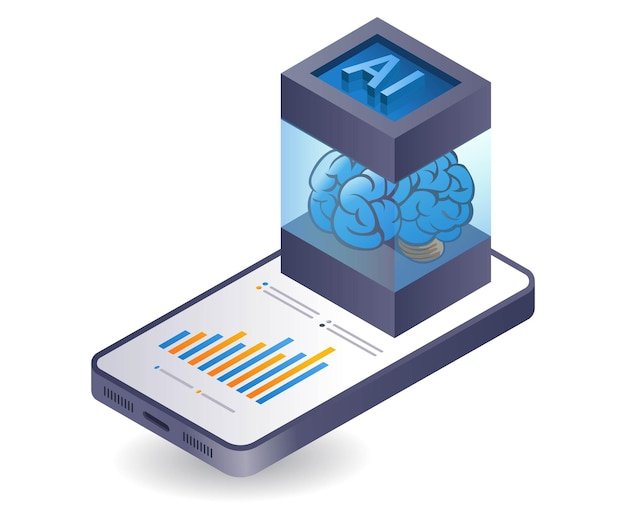The Role of Technology in Budgeting: Best Apps & Tools for 2025

The Role of Technology in Budgeting: Apps and Tools for 2025 explores how smartphones and web-based platforms are streamlining finances, offering real-time tracking, automated savings, and personalized insights to achieve financial goals effectively.
In today’s fast-paced world, managing finances can be overwhelming, but technology offers a helping hand. The Role of Technology in Budgeting: Apps and Tools for 2025 will revolutionize the way we handle money, making it easier and more efficient than ever before.
Embracing Digital Transformation in Budgeting
The digital revolution has touched almost every aspect of our lives, and budgeting is no exception. As we look towards 2025, technology will play an even more significant role in helping individuals and families manage their finances effectively. From sophisticated apps to AI-powered tools, the future of budgeting is digital.
The Rise of Fintech Solutions
Fintech companies are at the forefront of this transformation, offering innovative solutions that simplify budgeting and financial planning. These solutions leverage data analytics, machine learning, and user-friendly interfaces to provide personalized financial advice and tools.
- Personalized insights: Fintech apps analyze spending habits to offer tailored recommendations.
- Automated savings: Tools automatically transfer funds to savings accounts based on income and expenses.
- Real-time tracking: Users can monitor their spending and income in real-time, making it easier to stay on track.
Fintech solutions provide a holistic approach to financial management, equipping users with the necessary tools to achieve their financial goals.
Top Budgeting Apps to Watch in 2025
Several budgeting apps are expected to lead the charge in transforming personal finance in 2025. These apps stand out due to their unique features, user-friendly interfaces, and ability to integrate with other financial tools. Selecting the right apps can greatly improve budgeting success.
Feature-Rich Platforms
Some apps are packed with features that cater to a wide range of financial needs. These platforms often include tools for budgeting, expense tracking, debt management, and investment planning.
- Mint: Offers a comprehensive overview of financial accounts and spending habits.
- YNAB (You Need a Budget): Focuses on teaching users how to allocate every dollar they earn.
- Personal Capital: Combines budgeting tools with investment tracking and financial planning services.
These apps cater to users who want a detailed view of their financial health and a robust set of tools to manage their money.
AI-Powered Budgeting Tools
Artificial intelligence is poised to revolutionize budgeting by offering more personalized and efficient solutions. AI-powered tools can analyze vast amounts of data to provide insights and recommendations that would be impossible for humans to generate manually.
Personalized Financial Advice
AI algorithms can analyze spending patterns, income streams, and financial goals to offer personalized advice. This advice can range from suggesting ways to reduce expenses to identifying investment opportunities.
AI-driven chatbots can answer financial questions and provide guidance in real-time, making financial education more accessible and convenient. These chatbots can help users understand complex financial concepts and make informed decisions.

Moreover, AI enhances fraud detection and cybersecurity in budgeting apps, protecting users from financial threats. AI algorithms can identify suspicious transactions and alert users to potential fraud attempts.
AI-powered tools are set to transform the landscape of personal finance by providing personalized advice, automating financial tasks, and enhancing security.
The Role of Open Banking in Budgeting
Open banking is a concept that allows third-party financial service providers to access a customer’s banking information with their consent. This enables the integration of various financial tools and services, making budgeting more seamless and efficient.
Seamless Integration of Financial Tools
Open banking facilitates the integration of budgeting apps with bank accounts, credit cards, and other financial platforms. This eliminates the need for manual data entry and ensures that users have an accurate and up-to-date view of their finances.
Users can connect their accounts to budgeting apps, allowing the apps to automatically track income and expenses. This automated tracking saves time and reduces the risk of errors.
Open banking also enables the development of innovative financial products and services, such as personalized loan offers and automated investment recommendations. These offerings can help users achieve their financial goals more effectively.
Open banking enhances the user experience by providing a seamless and integrated approach to financial management.
The Future of Budgeting: Predictions for 2025 and Beyond
Looking ahead, the future of budgeting is likely to be shaped by several key trends. These trends include the increasing adoption of AI, the continued growth of fintech, and the rise of decentralized finance (DeFi).
Key Trends Shaping Personal Finance
As AI continues to evolve, we can expect to see even more sophisticated AI-powered budgeting tools. These tools will be able to provide increasingly personalized financial advice and automate more financial tasks.
- Increased personalization: AI algorithms will become even better at tailoring advice to individual needs and goals.
- Automation: AI-powered tools will automate tasks such as bill payments, savings contributions, and investment management.
- Enhanced security: AI will play a crucial role in protecting users from fraud and cybersecurity threats.
Fintech companies will continue to innovate, offering new and improved budgeting solutions. These companies will leverage emerging technologies to provide more efficient, user-friendly, and personalized financial tools.
How to Choose the Right Budgeting Tools for 2025
With so many budgeting apps and tools available, choosing the right ones can be challenging. It’s essential to consider your individual financial needs and goals when selecting the tools that are best suited for you.
Assessing Your Financial Needs and Goals
Start by assessing your current financial situation. Identify your income, expenses, debts, and assets. This will give you a clear picture of where you stand financially.
Set specific, measurable, achievable, relevant, and time-bound (SMART) financial goals. Do you want to pay off debt, save for a down payment on a house, or invest for retirement? Having clear goals will help you choose tools that align with your objectives.
Consider your budget. How much are you able to spend on budgeting applications? Are these applications worth it?
By assessing your financial needs and goals, you can choose budgeting tools that will help you achieve financial success.
| Key Aspect | Brief Description |
|---|---|
| 📊 Real-Time Tracking | Monitor income and expenses instantly. |
| 🤖 AI-Driven Advice | Get personalized financial recommendations. |
| 🔒 Open Banking Integration | Connect various financial accounts securely. |
| 🛡️ Enhanced Security | Protect from fraud with AI detection. |
Frequently Asked Questions
▼
Technology helps streamline budgeting by providing tools for real-time expense tracking, automated savings, and personalized financial advice, making financial management more efficient and accessible.
▼
Apps like Mint, YNAB (You Need a Budget), and Personal Capital are expected to remain popular due to their comprehensive features, user-friendly interfaces, and ability to integrate with other financial tools.
▼
AI enhances budgeting by providing personalized financial advice, automating financial tasks, and improving security through fraud detection, making financial management more efficient and tailored to individual needs.
▼
Open banking allows third-party financial service providers to access a customer’s banking information with their consent, enabling seamless integration of financial tools and providing a more accurate and up-to-date view of finances.
▼
Assess your financial situation, set specific goals, consider your comfort level with technology, and choose tools that align with your objectives. Reading reviews and trying out free trials can also help.
Conclusion
As we approach 2025, technology continues to play an increasingly crucial role in budgeting and personal finance. With the proliferation of sophisticated apps, AI-powered tools, and open banking initiatives, managing money has never been more accessible or efficient. By embracing these technological advancements, individuals can take control of their financial futures and achieve their long-term goals.





